Galaxy Z Flip 6 vs Motorola Razr Plus (2024): How the tables have turned
We may earn a commission if you make a purchase from the links on this page.
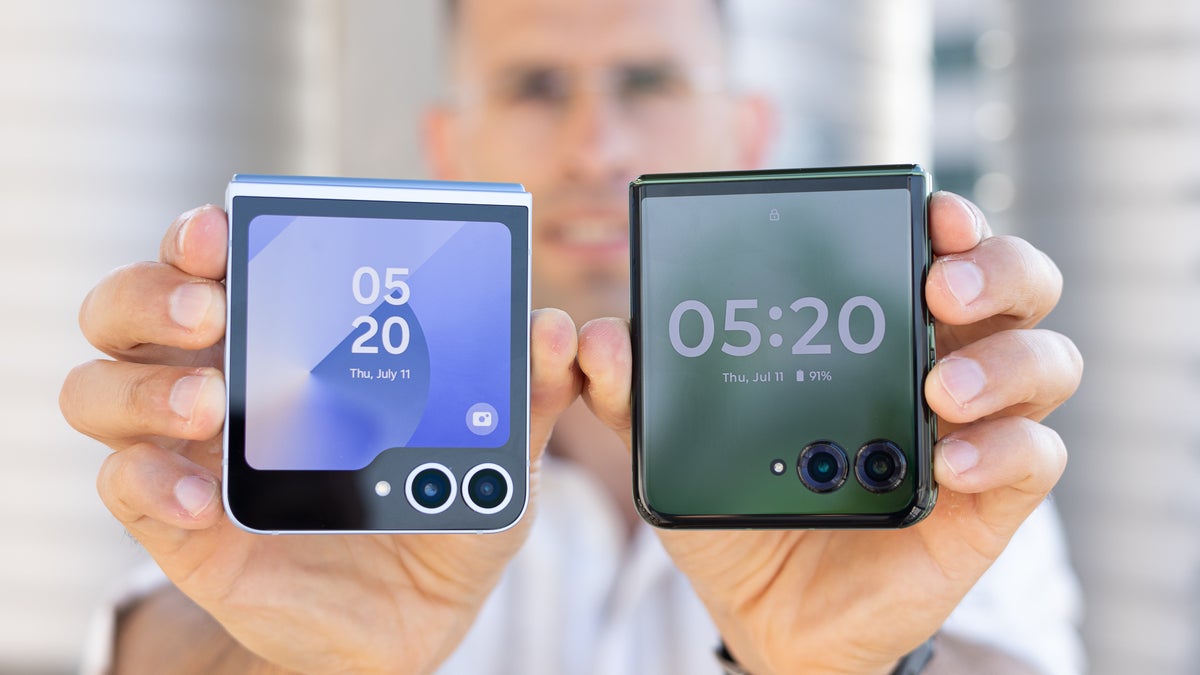
Intro
The Galaxy Z Flip 6 and the Razr Plus (2024) represent two of the best foldable flip phones available today, but they offer distinct advantages that could sway your purchasing decision. Samsung’s Z Flip 6 is an excellent choice for those seeking a more compact, durable device with better long-term software support and a more powerful chipset.
In this article, we’ll compare the Z Flip 6 and Razr Plus (2024) across several key categories to help you determine which foldable is best for you. From design and display to performance and battery life, we’ll break down the differences that matter most, so you can make an informed decision based on your needs and preferences.
Galaxy Z Flip 6 vs Razr Plus (2024) differences:
| Galaxy Z Flip 6 | Razr Plus (2024) |
|---|---|
| Somewhat smaller size at 2.83 x 3.35 x 0.59 inches (folded) | Larger, coming in at 2.91 x 3.47 x 0.60 inches, but also with slightly bigger displays |
| More capable flagship chipset | Chipset is still capable, but not on par with other flagship processors |
| 12MP ultra-wide as secondary camera | 50MP 2X telephoto instead of an ultra-wide |
| 10MP selfie camera | Higher-resolution 32MP selfie camera |
| 25W wired charging | Faster 45W wired charging |
| Main display has a 120Hz refresh rate and cover screen maxes out at 60Hz | Main display has higher 165Hz refresh and cover screen is noticeably smoother with 165Hz |
| Main display has a more noticeably crease | The crease is barely an inconvenience |
| 7 years of software support | 4 years of software support with 3 major OS updates |
| Supports Galaxy AI | No on-device AI features you can actively use besides generating wallpapers |
| Starts at $1,099.99 for 12/256GB memory and storage variant | Starts at $1,000 for 12/256GB variant |
Table of Contents:
Also read:
Design and Display Quality
Motorola holds the lead
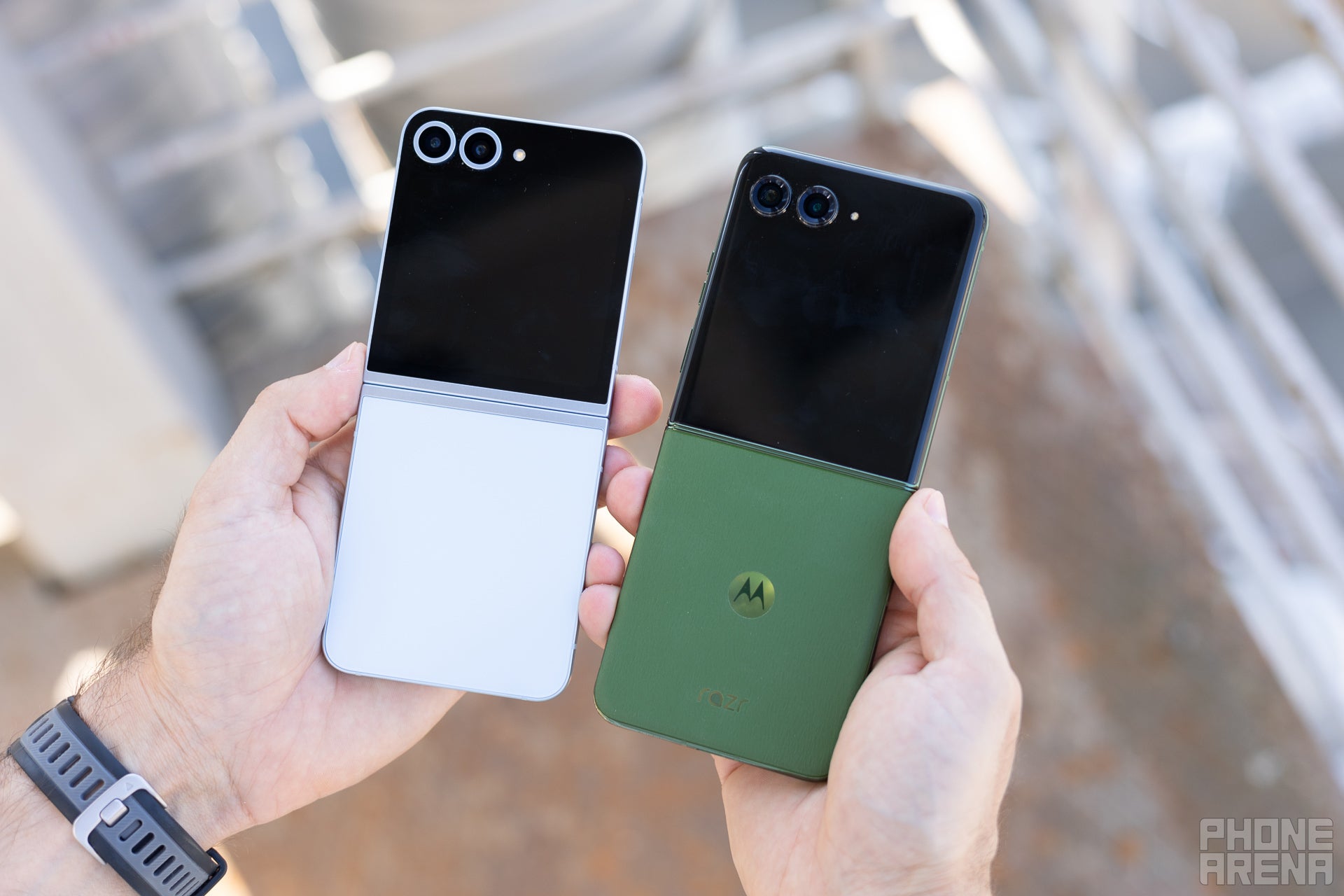
The Galaxy Z Flip 6 and Razr Plus (2024) shown from the back (Image by PhoneArena)
If you are looking for the most compact flip phone between these two, then the Z Flip 6 is the one you should check out, as it is considerably smaller than the 2024 Razr Plus.
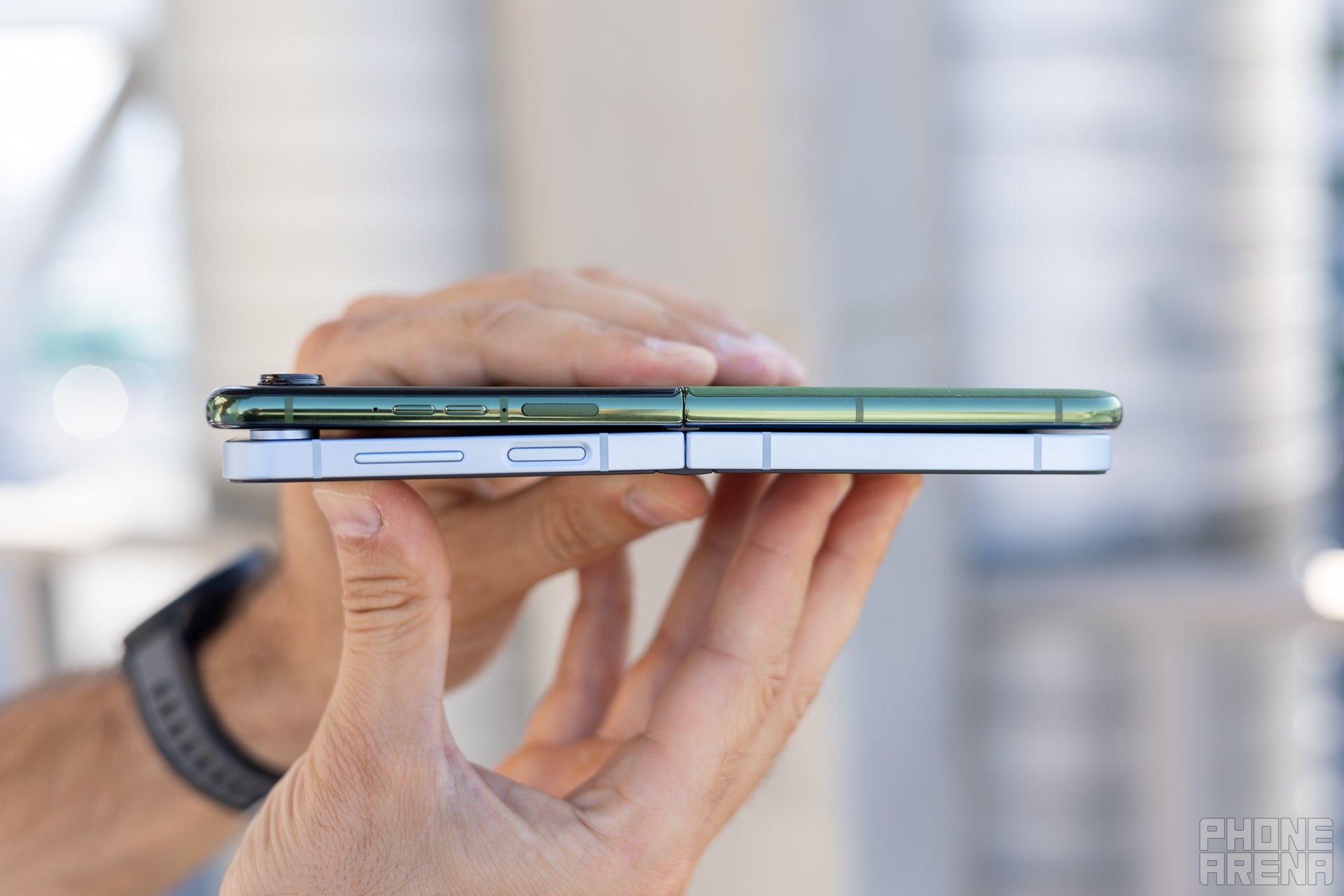
The new Razr Plus is thinner but the Z Flip 6 is shorter and more narrow (Image by PhoneArena).
Durability is also a factor here, with the Galaxy Z Flip 6 coming with a higher IP48 dust and water resistance rating vs. the Razr's IPX8. That said, the "4" in "IP48" references large particles of 1mm and larger than the dust we are used to seeing at home. Still, the Razr does not have that type of guaranteed protection.
The Z Flip also has Gorilla Glass Victus 2 protecting the cover display, whereas the Razr Plus has Gorilla Glass Victus (1st-gen), making the cover display on the Galaxy more durable.
As for their looks, surprisingly, Samsung did not include a larger cover display with the Z Flip 6, which makes the Razr Plus (2024) stand out with its cover screen that spreads throughout the whole upper part of the back panel. The Z Flip, on the other hand, looks a bit outdated in comparison.
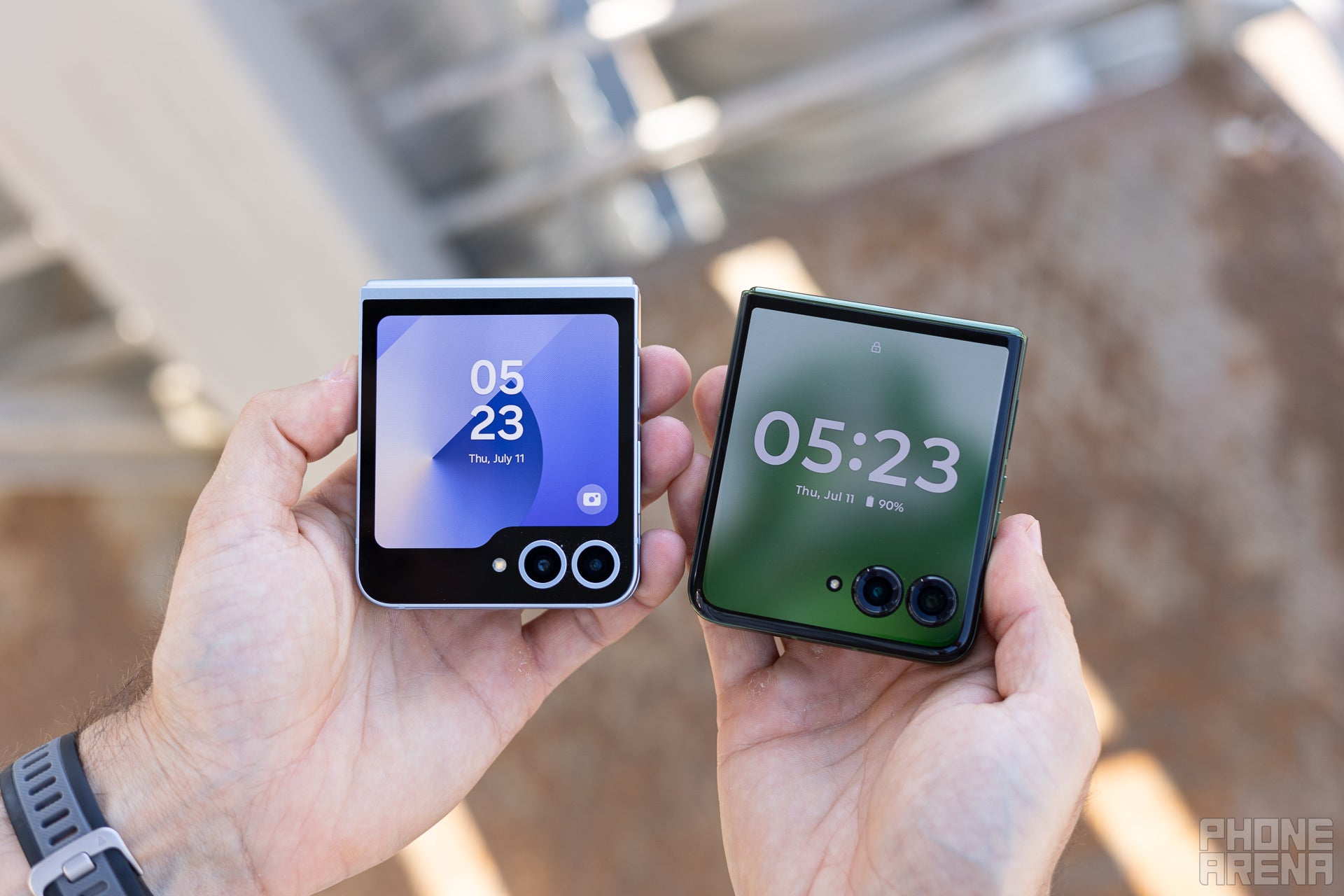
The Razr Plus (2024) looks so much better than the Z Flip 6 when closed thanks to that massive cover display (Image by PhoneArena).
Adding even more brownie points to the Razr Plus (2024) is the fact that its inner (foldable) display barely has a crease. Initially, we thought that Samsung has also achieved a similar feat with the Z Flip 6, as at first that's how it appeared. After a bit of folding and unfolding the phone, however, the Z Flip 6 did show a very noticeable crease, unfortunately.
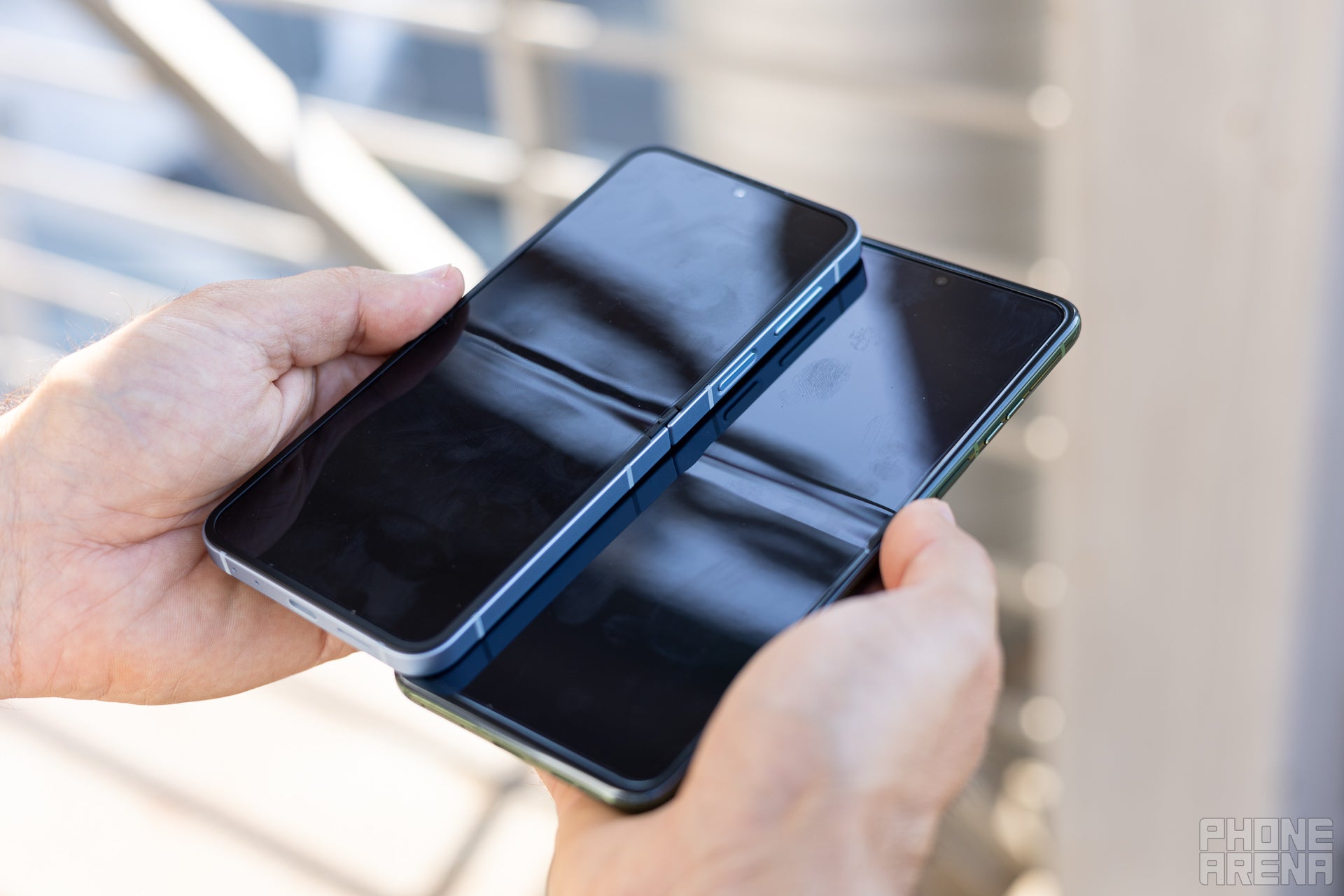
You can clear see how more visible the crease on the Z Flip 6 is (left) compared to the Razr Plus (right). (Image by PhoneArena)
Besides the larger cover displays, there are some changes to the materials used, with the Razr Plus now rocking a silicone/vegan leather lower back panel. The Z Flip 6 still has a glass back panel, which is easier to break and shows fingerprints.
Colors-wise, the Razr Plus comes in Midnight Blue, Spring Green, Peach Fuzz, and Hot Pink hues. Samsung offers more color variants with the Z Flip 6: Silver, Shadow, Yellow, Blue, Mint, Crafted Black, White, and Peach.
When it comes to the unboxing experience, Motorola is undoubtedly the one that takes the cake in this case. The Razr Plus comes with a color-matching case and lanyard. The Z Flip 6, on the other hand, does not include such gifts. Unfortunately, both phones lack a charger in the box, though.
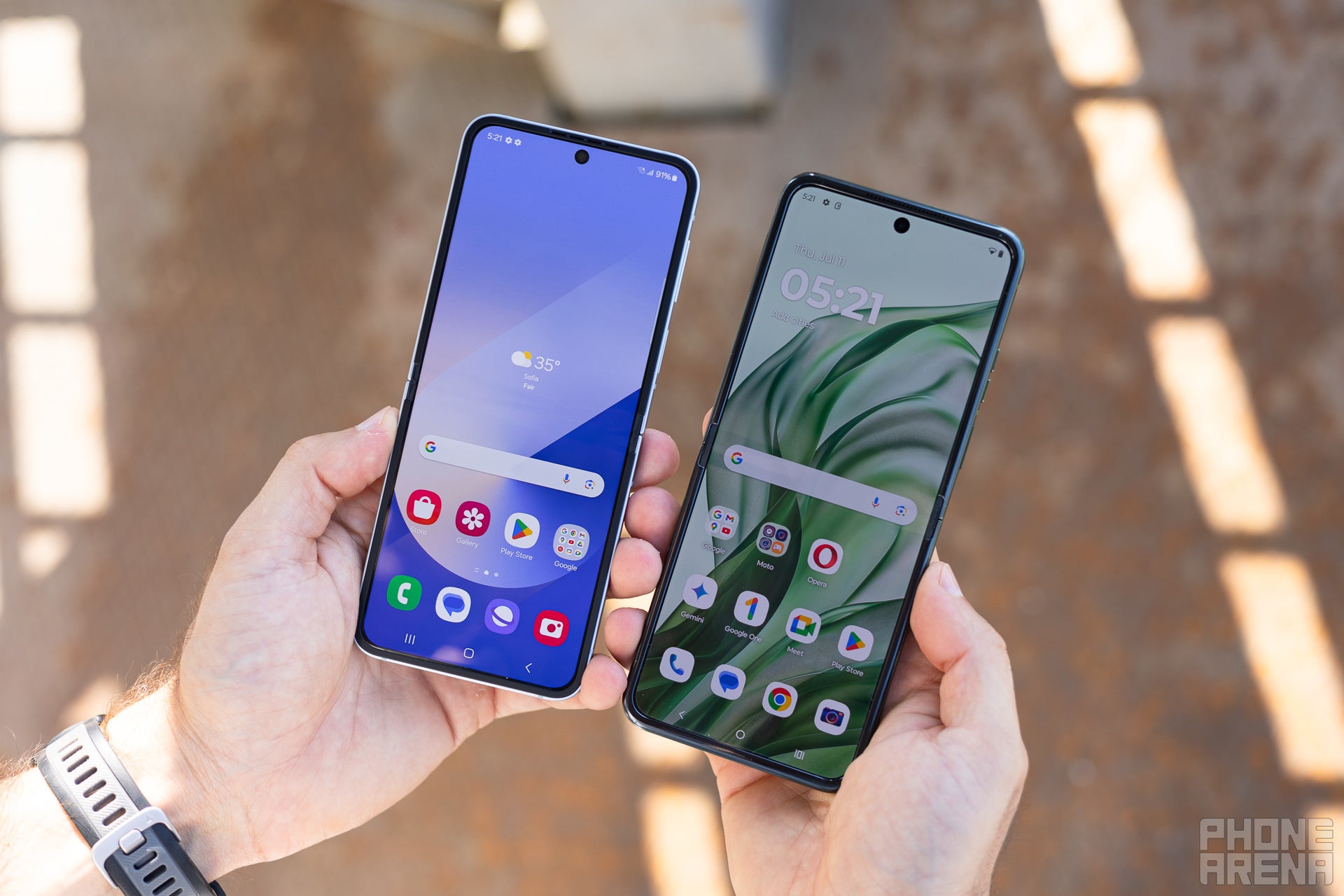
Looking at them unfolded definitely shows how the Z Flip 6 would be more comfortable to hold than the Razr (Image by PhoneArena).
As we already mentioned, the Razr Plus cover display is larger, coming in at 4 inches, while the Galaxy Z Flip 6 has a 3.4-inch one. But the differences do not end there.
Also read: Galaxy Z Flip 6: Size Comparison
Motorola has also made the cover display 165Hz, which ensures a much smoother scrolling and swiping experience compared to the 60Hz refresh rate of the Z Flip's cover screen. We definitely felt that as we handled the two phones back to back when they are closed.
The main, foldable display of the Razr Plus (2024) is also bigger than that of the Z Flip 6, measuring 6.9 inches vs. 6.7 inches. However, as mentioned earlier, Motorola has done a much better job at avoiding a crease in the middle of the display than Samsung.
We found out that the main displays of the Z Flip 6 and the Razr Plus (2024) are about as equally bright during our display lab tests. Our two units were also somewhat similar in terms of color accuracy.
Performance and Software
The Z Flip has the newer chip and more horsepower
The Z Flip 6 comes with the Snapdragon 8 Gen 3, which is only natural given that the rest of Samsung's flagship phones in 2024 have that chip. It is the latest and greatest from Qualcomm, and offers a great performance boost compared to the Snapdragon 8s Gen 3 that powers the Razr Plus (2024), especially when it comes to multi-core processing and graphics.
The Snapdragon 8s Gen 3—notice the "s" after the "8"—is a less powerful version compared to the 8 Gen 3 that you see on most 2024 Android phones.
The benchmark results we got during our performance test showed us that the Z Flip 6 beats the Razr Plus in all categories when it comes to performance. The Z Flip 6 did feel somewhat more snappy when we were using it, and it seemed to do better during gaming sessions, matching the 3DMark Extreme graphics test results we see above.
As for storage and memory, the Razr only comes in a 12/256GB option in the US, while Samsung gives the option to choose from 12/256GB and 12/512GB variants of the Z Flip 6. Both phones come with fast and power-efficient UFS 4.0 storage and LPDDR5 RAM.
Samsung also wins when it comes to software support, with 7 years of Android updates and security patches on the Z Flip 6. In comparison, Motorola continues to offer 3 years of Android updates and 4 years of security patches with the new Razr Plus, just like with its predecessor.
Camera
The Razr comes out on top (if you don't need ultra-wide)
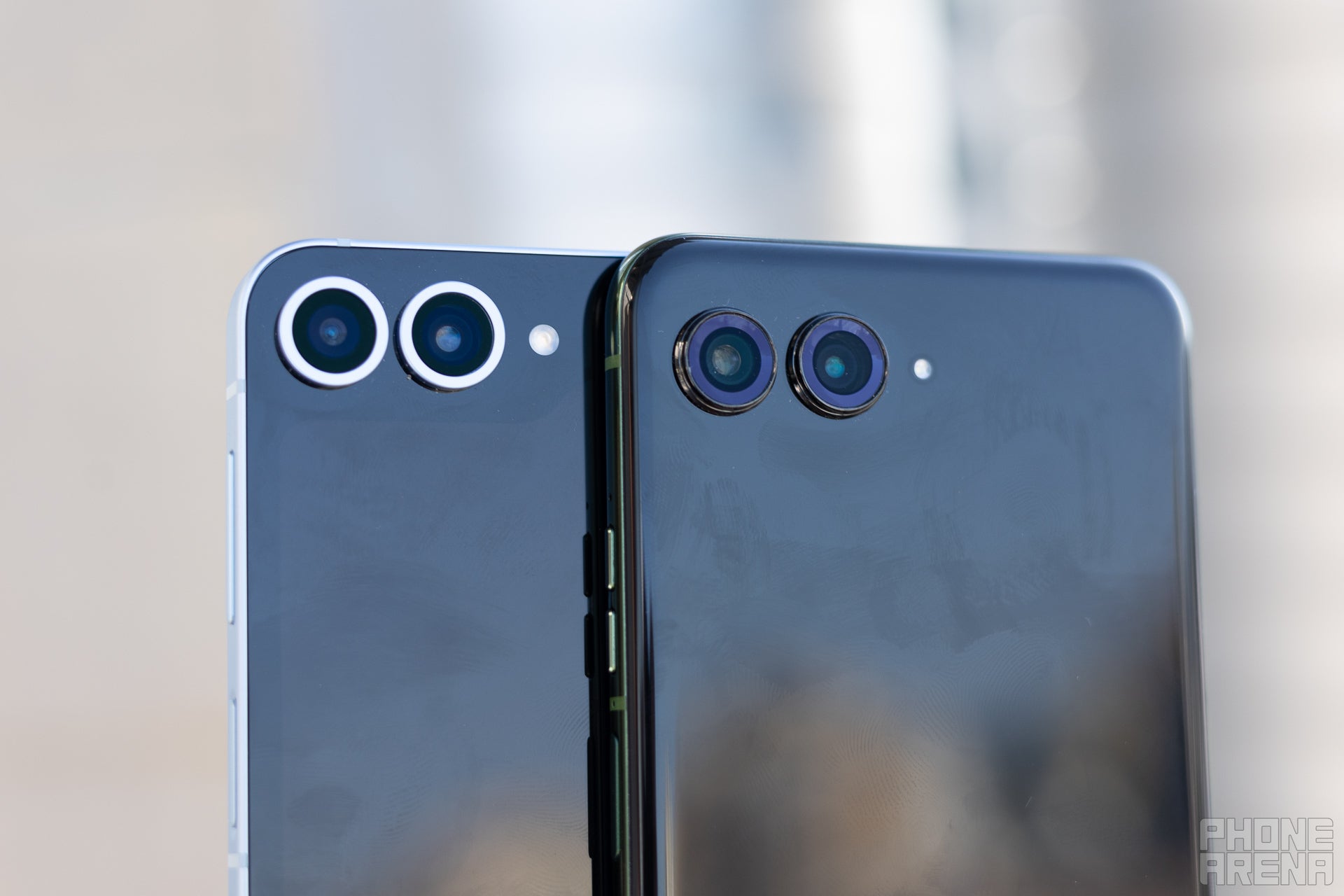
A closer look at the Galaxy Z Flip 6 and Razr Plus (2024) dual cameras (Image by PhoneArena).
Both phones come with dual camera systems at the back, with the 50MP main cameras. The secondary camera on the Z Flip 6 is what you would expect from a phone in 2024: a 12MP ultra-wide one. Motorola, however, has opted to swap the ultra-wide camera on its premium flip phone with a 50MP 2x telephoto camera.
The selfie cameras are very different between the Z Flip 6 and Razr Plus (2024), with the former rocking a 10MP camera and the latter a 32MP one. Then again, front-facing cameras on a flip phone are not that important, considering you can use the main camera at the back and the cover display in tandem to get much better photos.
As you will see from the photo samples bellow, the Razr Plus (2024) manages to offer the better image in almost all cases. That being said, the Z Flip 6 has such good zoom even without a telephoto camera that it almost feels like there are three cameras at the back instead of two. So, you kind of have to decide between better images or a more comprehensive camera set.
PhoneArena Camera Score:
If you look at the overall photo and video scores that make up our Camera Score rating you might think that the Z Flip 6 has a considerably better camera performance than the Razr Plus (2024). However, it is the fact that the Razr does not come with an ultra-wide that makes it lag behind so much. After all, even if you don't have a dedicated telephoto camera like on the Z Flip 6, the phone can still zoom, but if you don't have an ultra-wide angle you can't compensate with anything.
Main Camera
Not only do the colors on the Razr look more natural, but the image also appears to be sharper. Apart from that the HDR performance seems to be similar (both of them are good), and the Z Flip 6 has a wider field of view so it captures more inside the image.
In the low-light scenario we continue to see the Razr Plus (2024) offer better sharpness, especially when you look at the edges of the shot. Colors are also much more accurate on the Motorola. We do find the Z Flip 6 main camera to have done better at bringing out more detail from the shadows.
Also read: Galaxy Z Flip 6 camera: PhoneArena camera score and photo samples
Despite not having a telephoto camera, the Z Flip 6 manages to match the Razr Plus (2024) in terms of zoom quality. The Razr's 2X telephoto does offer more detail in the dark areas, though, and its colors look much better in comparison.
Of course, since the Razr does not have a dedicated ultra-wide camera, we cannot really compare one to that of the Z Flip 6.
Zoom Quality
Despite not having a telephoto camera, the Z Flip 6 manages to match the Razr Plus (2024) in terms of zoom quality. The Razr's 2X telephoto does offer more detail in the dark areas, though, and its colors look much better in comparison.
Ultra-wide Camera
Of course, since the Razr does not have a dedicated ultra-wide camera, we cannot really compare one to that of the Z Flip 6.
In general, we like the image quality from the ultra-wide camera on the Z Flip 6, and it almost feels like the phone has three cameras at the back given how well it also performed when zooming in digitally.
Selfies
The Razr Plus (2024) provides much more natural colors, whereas the Z Flip 6 makes the skin color sickly by throwing in a green tint to it. There is also more detail in the selfie from the Motorola, and it has been better exposed to show more of the eyes without blowing out the highlights in the image.
Audio Quality
Both the Galaxy Z Flip 6 and the Razr Plus (2024) have good-sounding speakers. If we had to pick on of the two though, we would probably go for the Z Flip 6, as the Razr has a bit of distortion when the volume is high, especially in the low frequencies.
Both are good enough to watch some quick YouTube videos, but keep your expectations low. There is simply not enough space inside these phones for any high-quality sound to come out, which is one of the sacrifices you have to make when purchasing a small foldable phone.
Battery Life and Charging
The Razr still prevails in this category
The Z Flip 6 comes with a slightly larger 4000 mAh battery this time, which is exactly what the Razr Plus (2024) has. That means any battery life differences you see from our dedicated battery tests below is a result of how power efficient the two foldables are.
For context, last year the Razr Plus faired massively better in our video streaming battery tests, but the Z Flip beat it by about an hour or two during our web browsing and 3D gaming battery tests.
Samsung really improved the battery life of the Z Flip series compared to last year's generation, and that shows here. That said, it still has some ways to go before being able to last as much as the Razr Plus in our Web Browsing and Video Streaming battery tests.
Overall, the Razr Plus (2024) is better at preserving its battery than the Z Flip 6, but the Galaxy is not that far behind anymore. Both are pretty impressive considering they are foldable phones though, which tend to have worse battery life than traditional phones. The Razr Plus even managed to get into our top 10 phones with the best battery life.
For charging, there is no doubt the new Razr Plus (2024) beats the Z Flip 6 by a landslide as it comes with 45W wired charging. The Z Flip 6, on the other hand, maxes out at 25W. The two come with the same maximum wireless charging speed though, reaching 15W with an appropriate charger.
Specs Comparison
Here's a quick overview of the Galaxy Z Flip 6 vs Razr Plus (2024) specs:
| Galaxy Z Flip 6 | Razr Plus (2024) | |
|---|---|---|
| Size, weight | Folded: 71.9 x 85.1 x 14.9mm Unfolded: 71.9 x 165.1 x 6.9mm Weight: 187g | Folded: 74 x 88.1 x 15.3 mm Unfolded: 74 x 171 x 7.2 mm Weight: 187g |
| Screen | Inner display: 6.7" OLED, 120Hz Cover display: 3.4" OLED, 60Hz | Inner display: 6.9" OLED, 165Hz Cover display: 4" OLED, 165Hz |
| Processor | Qualcomm Snapdragon 8 Gen 3 (4 nm) | Qualcomm Snapdragon 8s Gen 3 (4nm) |
| RAM, Storage | 12/256GB 12/512GB UFS 4.0 storage LPDDR5 memory | 12/256GB 12/512GB UFS 4.0 storage LPDDR5 memory |
| Cameras | 50MP main 12MP ultra-wide 10MP front | 50MP main 50MP telephoto 32MP front |
| Battery | 4000 mAh | 4000 mAh |
| Charging | USB-C 25W wired 15W wireless 4.5W reverse-wireless | USB-C 45W wired 15W wireless 5W reverse-wireless |
There are numerous differences between these spec sheets. We have different sizes between the Z Flip 6 and Razr Plus (2024), very different camera systems, as well as different charging speeds.
Which one should you buy?
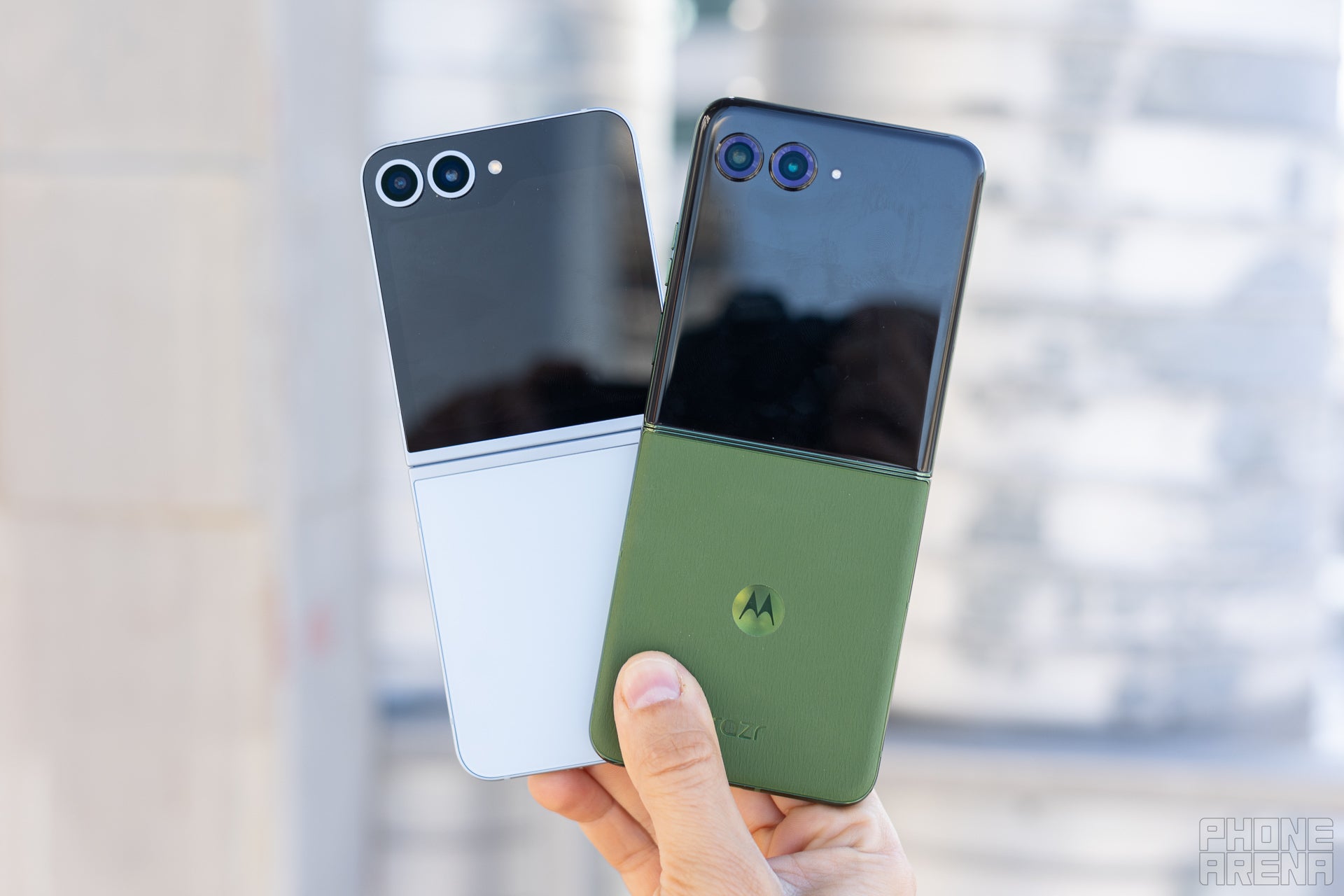
The Z Flip 6 and Razr Plus (2024) are both great flip phones, but there's a clear winner (Image by PhoneArena).
It seems this year flip phone lovers will have a somewhat tough decision to make thanks to the Galaxy Z Flip 6 and the Razr Plus (2024) from Motorola. Samsung offers a more compact and durable device with longer software support and a more powerful chipset, showing its long experience in the manufacturing of foldable phones.
There's also the fact that the Z Flip 6 comes with all of the Galaxy AI features Samsung introduced with the S24 series, such as the ability to transcribe, translate, and summarize voice recordings directly in Notes, for example. The Razr Plus, on the other hand, mainly relies on Google's powerful Gemini smart assistant, with an easy access to it via the words "Hey Google."
But the Razr Plus has managed to evolve to a level where it can rival and even surpass the likes of Samsung in more than one area. You get faster charging, two larger and more modern displays with higher display refresh rate, a much less visible crease, and a significantly better camera system.
Another benefit for the Razr Plus (2024) is that it costs $100 less than the Z Flip 6. That makes it a big threat to Samsung's clamshell foldable in our opinion, especially considering its cameras and screens.
So, if you are looking for longer software support and the best performance possible the Z Flip 6 sounds like the right choice, but even then we would recommend the Razr Plus (2024) as the better option since it offers much more benefits for a lower price.
Follow us on Google News


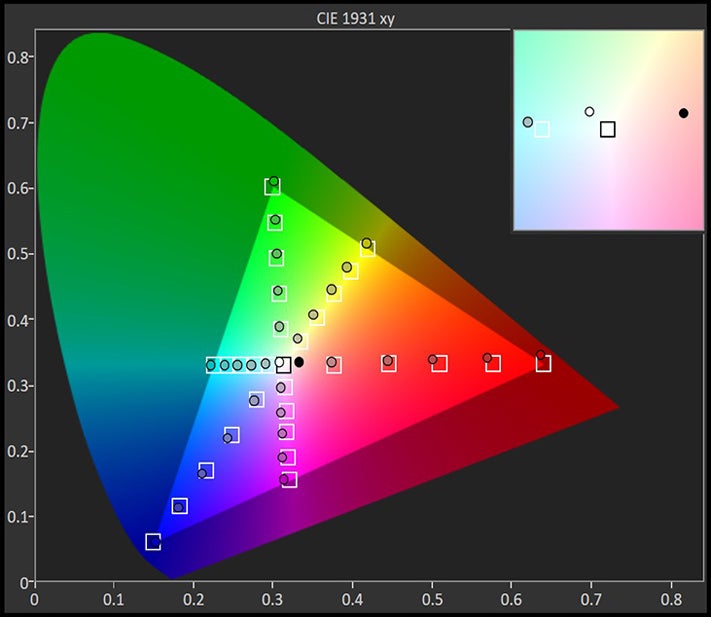







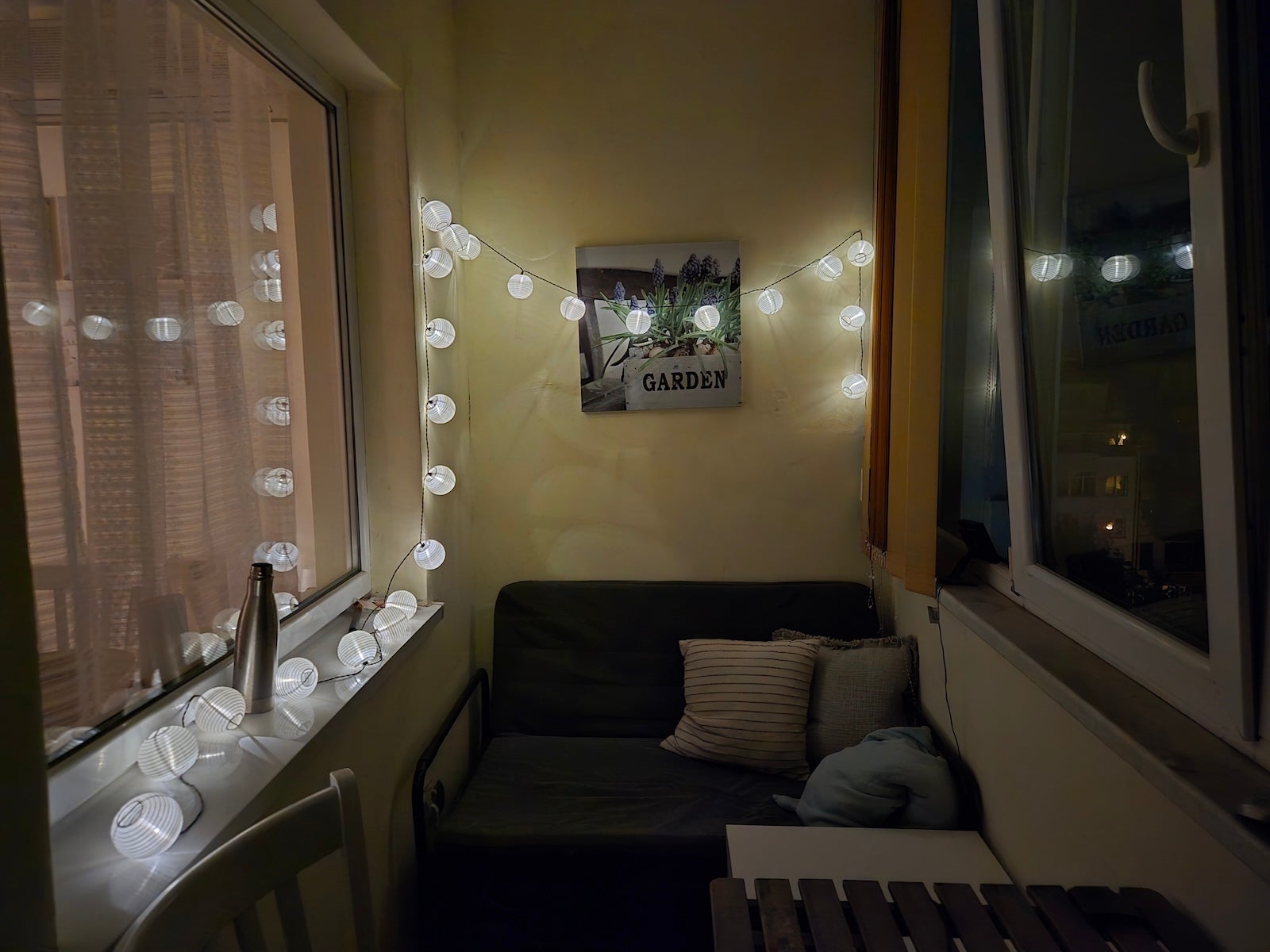
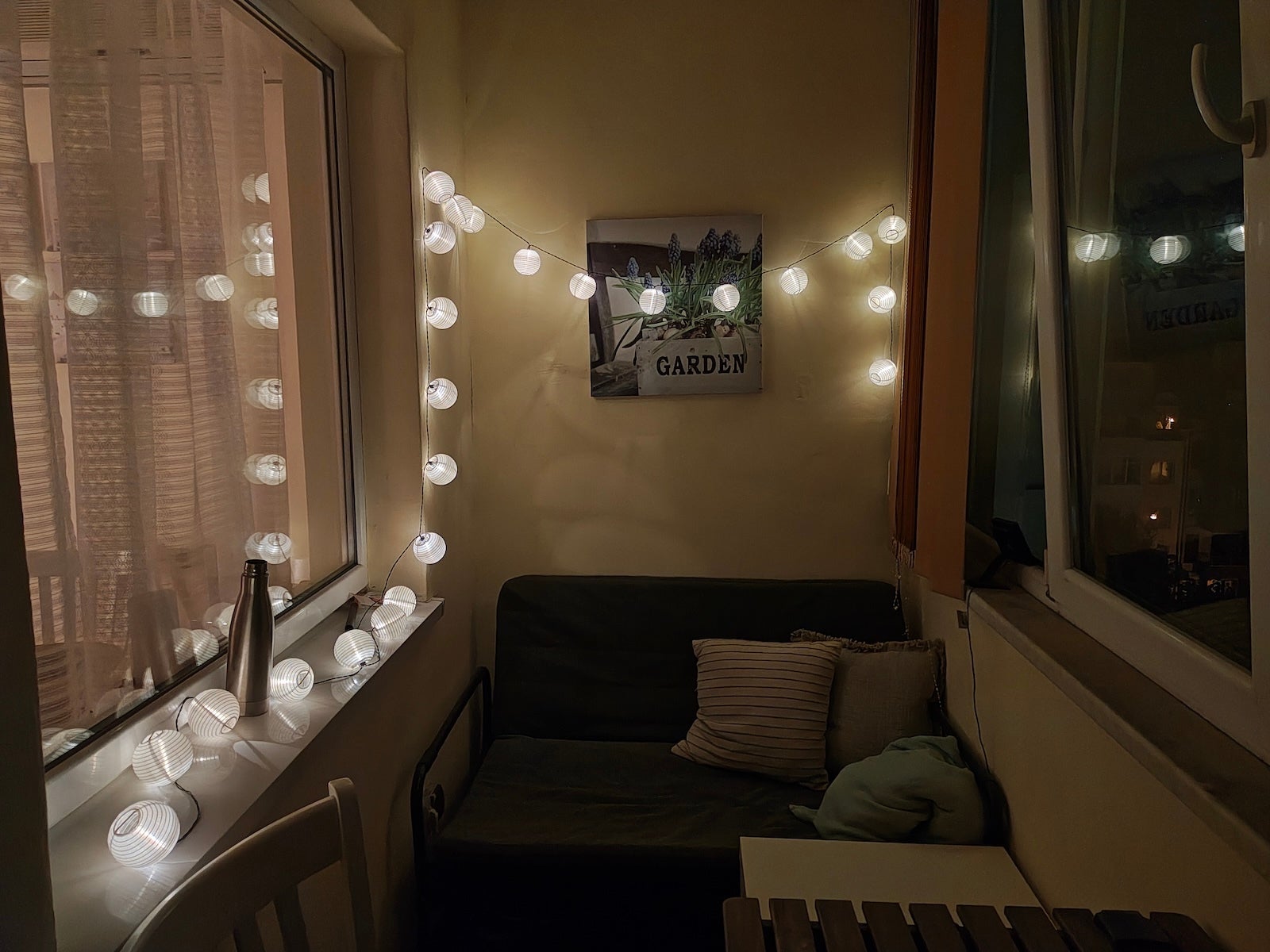








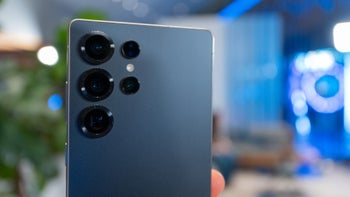
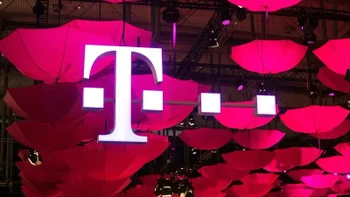

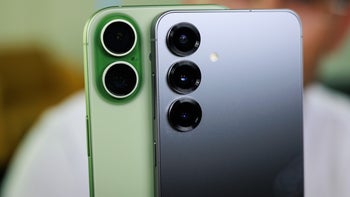







Things that are NOT allowed:
To help keep our community safe and free from spam, we apply temporary limits to newly created accounts: